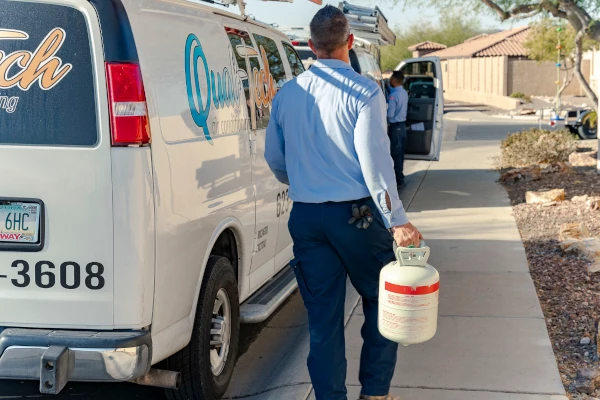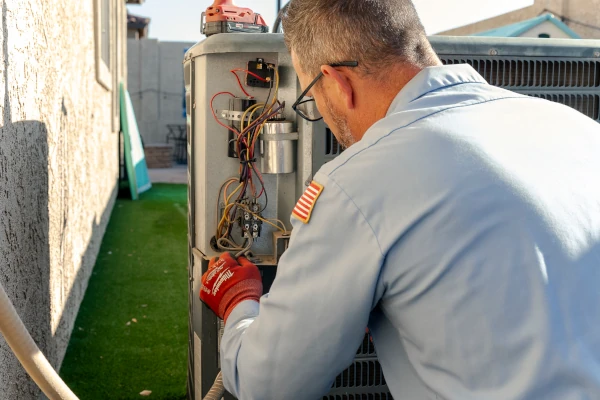Your air conditioner is your best defense against the scorching Arizona heat, but what happens when it starts struggling to keep your home cool? One common issue is low refrigerant levels, which can prevent your AC from reaching the desired temperature. Since refrigerant is part of a closed system, it doesn’t simply run out—if your unit is low, there’s likely a leak. Ignoring this issue can lead to higher energy bills, system strain, and eventual failure.
In this article, we’ll cover “Does your AC system need refrigerant”, why leaks happen, and what you can do to keep your AC running efficiently.
Signs Your AC May Be Low on Refrigerant
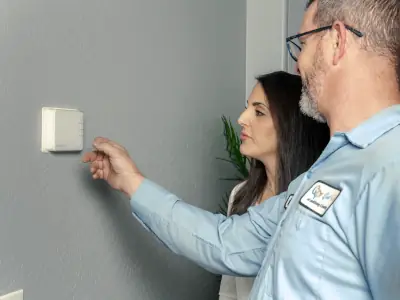
1.Struggling to Keep Up With Cooling Load
If your AC runs constantly but never reaches the thermostat’s set temperature, it could be low on refrigerant. In Arizona’s extreme heat, this issue becomes even more noticeable. A properly functioning system should cool your home efficiently without overworking. If your AC seems to be running non-stop or can’t keep up with rising outdoor temperatures, it’s a strong indication that it might be low on refrigerant due to a leak.
Low refrigerant issues can be harder to spot in winter, but if you use a heat pump, you might notice longer heating cycles or difficulty maintaining indoor temperatures. For normal AC units, however, you could notice abnormally long run-times even for mild mid-day cooling.
2. Warm or Weak Airflow
If your AC is running but blowing warm air or has weak airflow, it could be low on refrigerant. Properly charged systems should deliver strong, cool air. If you notice that certain rooms aren’t cooling, or the airflow feels weaker than usual, your system may be struggling due to low refrigerant levels caused by a leak.
Refrigerant absorbs heat and cools the air before circulating it through your home. When levels are too low, the evaporator coil may freeze, restricting airflow. If airflow is partially blocked, you may feel weak airflow or even warmer air because the system isn’t effectively transferring heat. The reason frozen coils can cause warm air is the same reason Igloos are warm, which is that ice is a good insulator, resulting in poor transfer of heat. In severe cases, airflow can stop completely.
3. Frozen Evaporator Coils
Of course, if you suspect that warm airflow is being caused by frozen coils, you can just check the coils manually. The evaporator coil is usually located inside your home, often near the air handler or furnace. In central systems, it’s typically inside the metal plenum above the furnace. For ductless mini-splits, it’s inside the indoor unit behind the vents. In window units, it’s found inside the front panel. If any ice has formed on the unit, it’s a clear sign that there’s a malfunction.
But why should low refrigerant cause your coils to become colder? Shouldn’t the low refrigerant cause less heat transfer, leading to abnormally warm coils? Well, low refrigerant reduces the pressure in the evaporator coil, causing the refrigerant to expand too rapidly, causing it to cool dramatically. You can prove to yourself that lower pressures lead to colder temperatures if you use a can of compressed air, and observe that the can gets cold the more it’s used. As the temperature of the coil drops, moisture from the air freezes on the coil. This ice buildup restricts airflow and prevents proper heat absorption. Ironically, this frozen coil causes the system to blow warmer air, as ice is more insulative than metal.
It’s important to note that dust can also cause poor heat transfer in much the same way Ice can, which is why it’s important to clean your coils every year or so. If the air coming out of your vents is warm, but the coils aren’t frozen, dust might be the reason.
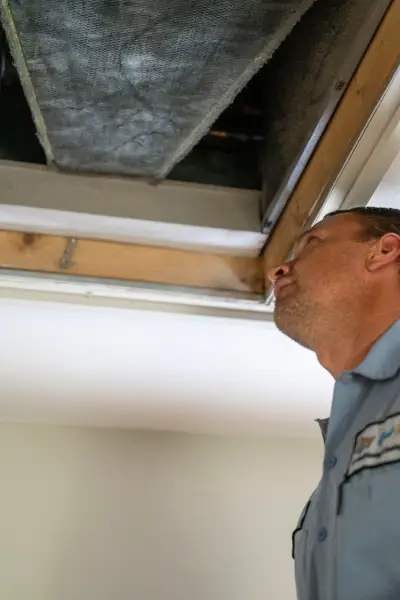
4. Higher Energy Bills
5. Hissing or Bubbling Noises
If you hear hissing or bubbling noises coming from your AC, it could indicate a refrigerant leak. These sounds occur when refrigerant escapes through a small hole or crack in the system, causing gas to move through the lines. This is a very pressing sign that your system is leaking, and the faster you can call a technician, the less you’ll have to spend on replacing refrigerant or dealing with system damage.
Hissing or bubbling noises typically come from areas where refrigerant lines are located, such as near the evaporator coil, condenser coil, or refrigerant valves, where leaks are more likely to occur. It’s good to tell your technician about where you might suspect leaks to accelerate the process.
Is It Normal for AC Units To Run Low On Refrigerant?
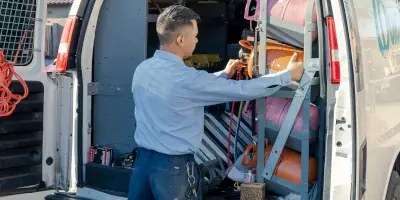
No, AC units are designed with a closed refrigerant system, meaning the refrigerant should remain inside unless there’s a leak. Over time, refrigerant doesn’t evaporate or deplete on its own. So, if your AC is low on refrigerant, it’s likely due to a leak somewhere in the system. The most common locations for such leaks are the evaporator coils, condenser coils, refrigerant lines, and connection points. These areas are susceptible to wear, corrosion, or damage, which can cause refrigerant to slowly escape from the system. See our article about whether AC units need top-offs for more.
When Should I Call A Professional?
A professional should be called as soon as you suspect a problem. Professionals are equipped with specialized tools for identifying and addressing leaks, and leaks don’t tend to get better over time. If the leak is large, it can lead to total system failure and even cause the compressor to burn out, and if that happens you might as well ditch the unit. You could wait to address a very small leak for a few days, but it’s not recommended. The cost of a repair will inevitably go up over time if a leak is not fixed, even a small one.
A small leak might cause gradual performance issues over time, while a large leak could result in your AC suddenly failing to cool at all. If your AC was doing great last week, but won’t cool a single degree now it’s indicative of a big leak. A technician can assess the severity using specialized tools like UV dyes or pressure gauges.
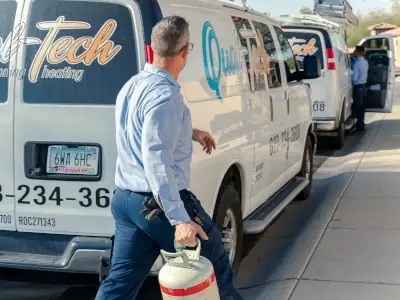
Should I Repair or Replace my Unit When It Leaks?
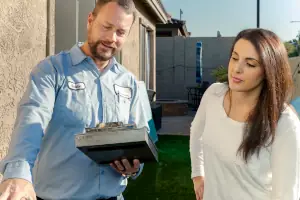
Repairing The Unit
HVAC specialists locate leaks using tools like UV dye or electronic detectors. They then seal minor leaks, replace damaged components if needed, and recharge the system with the correct amount of refrigerant.
Repair is the best option when the leak is small, the unit is relatively new, or the repair cost is significantly lower than replacement. If the system is otherwise in good condition and can hold refrigerant for an extended period, fixing the leak and recharging the refrigerant can restore the unit effectively.
Replacing The Unit
A Replacement means that your new unit will likely use a new refrigerant type. They often have improved efficiency, reliability, and cooling performance while reducing energy bills and maintenance costs. Newer forms of refrigerant, especially R-32 are often cheaper.
You should replace your AC if it has frequent leaks, or a major component failure. When a major leak goes unaddressed it can break related components like the compressor, which is the most expensive component to repair. A leak may also necessitate a replacement of the condenser or evaporator coils, making replacement a good option.
If you’d like to know more about the topic of repair vs replacement see our article: Should You Repair or Replace Your AC Unit?

Low refrigerant can severely impact your AC’s performance, leading to inefficiency, higher energy bills, and potential system damage. Recognizing the signs early and calling a professional can save you from costly repairs. Whether repairing a leak or replacing your unit, taking action ensures your home stays cool and comfortable year-round.

